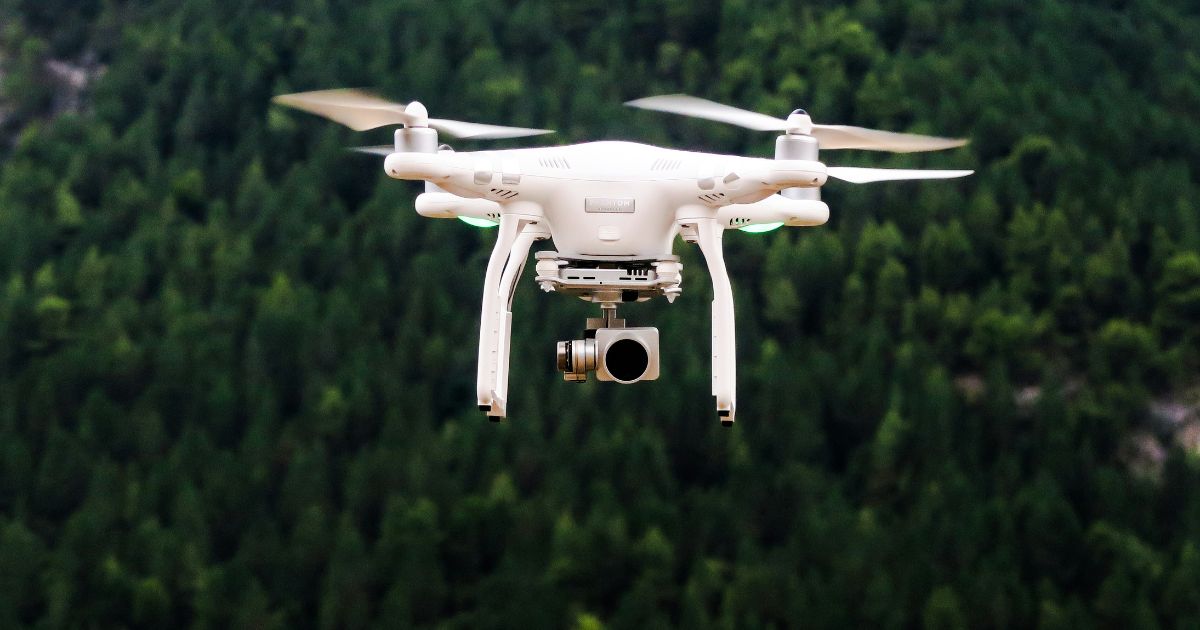Drones have been spotted around military bases, following a series of occurrences that caused air disruption earlier this week.
The devices were spotted above Karup airbase, among others, compelling it to temporarily shut its airspace to commercial traffic. Potential sightings were also reported in Germany, Norway, and Lithuania.
It comes on the heels of a series of suspicious drone incursions in Denmark, which have raised questions about the country’s exposure to airborne attack and even fueled speculation of Russian involvement.
The 25th September incursions were described by Danish authorities as a “hybrid attack”, but they warned that they had no indication Moscow was involved.
The 26th September incident occurred around 20:15 local time (18:15 GMT) and continued for a few hours, duty officer Simon Skelsjaer said to news agency AFP.
Police couldn’t comment on where the drones originated since they hadn’t shot them down, he added, and police were assisting the Danish military in their investigation.
Although civilian airspace over the base was temporarily closed, it did not affect anyone because no commercial flights were planned in the sector at the time, Skelsjaer said.
The Danish Defence Ministry has confirmed that drones were spotted near several military facilities overnight, but refused to say which ones. It would not comment further, it said.
The other military facilities have not been identified by Danish state media.
Danish officials have not ventured guesses about who could be responsible for the incursions by drones.
Approximately 3,500 employees work at Karup airbase, where all of the helicopters of the Danish Armed Forces are based, and part of the Danish Defence Command.
The incursions are just a few days after drones over Danish airports – some with military facilities as well – prompted airports to close and seal off their airspace.
Denmark’s Billund and Aalborg airports shut down due to drones over the airport on Wednesday evening, whereas three smaller airports experienced drone sightings but were able to operate.
On Monday, Copenhagen airport was shut down for a number of hours after drones were seen in multiple instances, whereas potential drone sightings temporarily closed Oslo airport in Norway.
Germany’s interior ministry announced it was probing after a number of drones were seen on Friday flying over Schleswig-Holstein, the province bordering Jutland, the European part of Denmark, where Karup airbase and the airports hit by Wednesday’s intrusions are located.
Interior Minister Alexander Dobrindt described the threat posed by drones as high and said that Germany would talk to European partners about the matter next month.
At the same time, Norwegian Police informed state media they were looking into potential drone sightings at Orland airbase west of the country, home to its F-35 fighter planes.
Drone activity also caused flights to be delayed on Friday at Vilnius airport in Lithuania, which borders Russian land, according to state media.
There are claims that Wednesday’s drone incursions were part of a Russian strategy of indirect aggression against Nato nations backing Ukraine in its conflict with Russia – although this link has not been established.
The Russian embassy in Copenhagen has denied “absurd speculations” of involvement in what it termed “staged provocations”.
Denmark’s defense minister commented that the “hybrid attack” was the creation of a “professional actor” but seemed to have been initiated locally.
A hybrid attack employs a combination of military and non-military means and is intended to disrupt a country’s infrastructure or institutions.
Russia had previously been accused of carrying out hybrid attacks, and Europe has been put on the alert following reports from various Nato member countries of Russian intrusions into their airspaces.
Estonia and Poland called for a consultation among other Nato members last week, following instances where an estimated 20 Russian drones entered Poland and Russian MiG-31 fighter jets intruded into Estonian airspace in two different instances.
Romania, a fellow Nato country, also reported that a Russian drone had entered its airspace.
Russia remained silent about the alleged intrusion in Romania but denied entering Estonian airspace and said the Polish intrusion was unintentional.
Russian participation after Monday’s incident in Copenhagen could not be excluded, Danish Prime Minister Mette Frederiksen said.
The accusations have been described as “unfounded” by Kremlin spokesman Dmitry Peskov.




